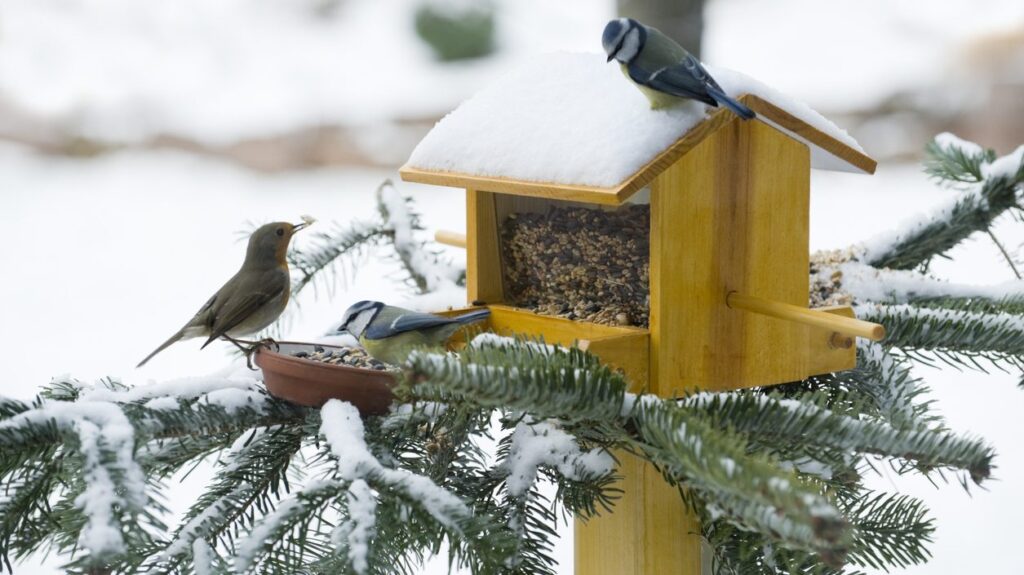Birdwatching is one of life’s simpler pleasures and one that becomes easier to do when you have the right food on hand to attract our feathered friends. And it doesn’t even have to be warm-weather activity. Even in the dead of winter, you can put out some bird seed and watch birds explore your yard from the comfort of your living room. Here is a list of winter bird seed you can find at our Mendham NJ garden center that will bring birds to your backyard this winter.
Black oil sunflower seed
We’ve seen this referred to as the “hamburger” of the bird world, because virtually every bird who drops by your yard will enjoy it, thanks to its easy-to-open shell and its kernel, which is larger than what you’d see in a traditional sunflower seed. Black oil sunflower seed the most popular variety of seed we sell at our Mendham, NJ garden center.
Peanuts
Peanuts are one thing people and birds can agree on. This protein-rich food is popular with finches, cardinals, jays, woodpeckers and chickadees.
But be careful: peanuts can carry harmful aflatoxins when they get wet. They can also entice unwanted animals like deer, raccoons and even bears. If you decided to put peanuts on the menu, make it in small portions and cover them up to keep them dry.
Safflower
These thick-shelled seeds are popular among chickadees, doves, grosbeaks and native sparrows. But as thick as it is, it can become soggy and inedible when wet, so take care to keep it inside your feeder during wet winter weather.
Cracked corn
Cracked corn is popular with several birds, including sparrows, doves, jays, blackbirds and quail. But once again, you need to exercise the same caution you would with peanuts. Cracked corn gets toxic when wet and can attract unwanted animals.
Suet
When cold weather comes, birds need fat and suet is one of the best ways to make sure they get it. If you’re not sure where to get suet, go to your grocery store and talk to the meat department. You may be able to purchase a separate suet feeder, but if you can’t find one, just put the suet inside a mesh onion bag. The birds won’t mind.
Fruit
Many birds – including Baltimore orioles, waxwings, robins and eastern bluebirds – enjoy raisins and other dried fruits, although birds will be just as happy with slices of fresh fruit.
Nyjer
This is a trademarked name for a product that was initially called “Niger seed” after the African nation where it comes from. You may also see it referred to as “thistle,” although it’s not related to thistle plants. Whatever the name, these seeds are a favorite of American goldfinches, lesser goldfinches, pine siskins, indigo buntings and common redpolls.
Mealworms
Mealworms aren’t really worms, but actually beetle larvae. Birds don’t care. They’ll eat them if you offer them. They can be purchased from bait shops or through the mail.
You can also make your own homemade bird treats. It can be something simple – putting peanut butter on a tree trunk – or more complicated, like suet treats.
You make these by melting suet in a microwave and then pouring it into an ice cube tray with bits of nuts, fruit or seed, then letting it freeze.
Be sure to place bird feeders at varying levels of your yard to attract a variety of birds. Some birds feed in trees, others near the ground, others in shrubs.
At Mendham Garden Center, we offer bird feeders designed for specific types of birds, and four varieties of bird seed mixes.
Visit our Mendham NJ Garden Center or either of our other locations, and we’ll help you keep your backyard birds happy and well-fed this winter.

